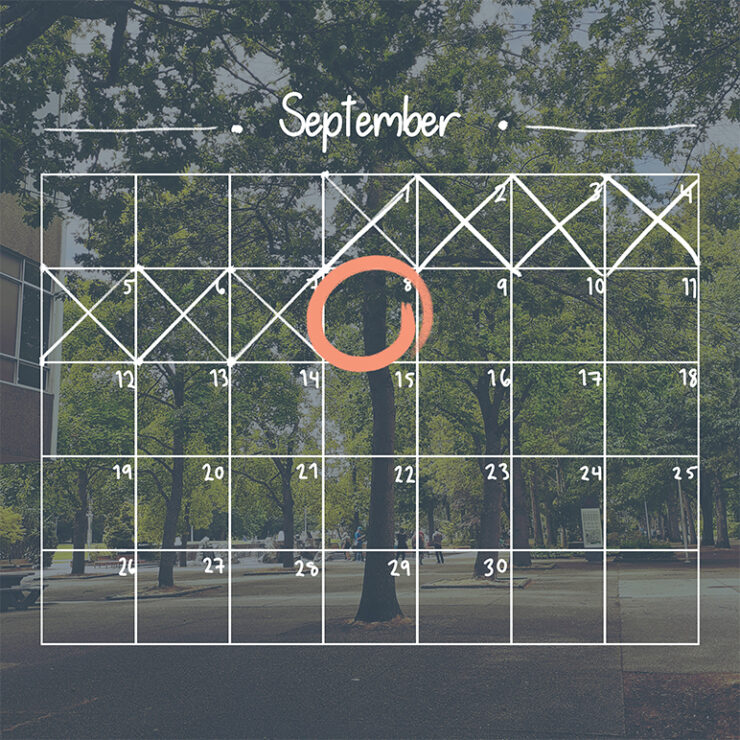The plan fails to accommodate students disproportionately affected by the COVID-19 pandemic

UVic’s fall return plan does not accommodate the needs of all students. Many international, immunocompromised, and disabled students are not comfortable with the return plan. They are dissatisfied with face-to-face classes, vaccines and masks not being mandatory to attend UVic, and there being no physical distancing in classes. Little is being done to provide alternative options to these students.
UVic, and every other university in B.C., is following the B.C. government’s return-to-campus guidelines. The return-to-campus guidelines advise universities to ditch social distancing measures and mandatory masks while not making vaccines mandatory. These guidelines are not fair. Certain students (including disabled, immunocompromised, and international students) are facing circumstances that are out of their control. They cannot, and should not be, expected to return to campus but UVic’s plans leave them with little choice.
For international students, it is a mammoth task to travel to Canada amid the COVID-19 pandemic. Some students will have to quarantine on arrival and yet UVic is doing little to support them. UVic is not providing any on-campus isolation accomodation for international students — instead they are encouraging them to find expensive off campus hotels or Airbnbs.
According to UVic, none of the residences on campus is “suitable for self-isolation (quarantine).” They say UVic’s on-campus accommodations do not satisfy Health Canada’s definition of an appropriate place for the 14-day mandatory quarantine. Although these federal quarantine requirements and campus protocols could change prior to the move-in date, many international students have already had to make their isolation plans.
UVic’s main competitor, UBC, offers self-isolation accommodation on campus at a subsidized rate of $45 + taxes per night (including meals) for international students who are facing financial hardship. Those who are not facing financial hardship have to pay $79+ taxes per night (including meals). These residence spaces offer a much cheaper option than hotels or Airbnbs, which are hundreds of dollars per night excluding meals.
As of July 5th, Canadian citizens, permanent residents, and essential foreign nationals (a category that includes international students) who have been fully vaccinated with a Health Canada approved vaccine are exempt from quarantine. However, these travellers will not be exempt from quarantine if they are fully vaccinated with a vaccine not approved by Health Canada, not vaccinated at all, or partially vaccinated.
Furthermore Indian students have to use precarious in-direct routes to come to Canada as direct flights between Canada and India have been banned since April. Coming back to Canada for face-to-face classes is not feasible for them.
Online or hybrid course delivery options should be a priority in every department at UVic to accommodate international students. UVic is only offering about a 100 online classes — mainly 100- and 200-level courses where international students enrollment is high. Any student who wants to study online should be able to. Many Indian students, other international students, and immunocompromised students would welcome this option. Without online options, immunocompromised students have to go to campus and fear for their safety against this wretched virus.
The latest COVID-19 modelling shows B.C. heading for a fourth wave. Our main defence against this wave will be vaccines and yet they are not mandatory at UVic.
UVic took an unwise decision of not making vaccines, masks and physical distancing mandatory to attend classes or live in residence. This decision will especially disproportionately affect immunocompromised and disabled people — they are ones who are the most vulnerable, exposed, to the virus. In May 2021, the Society for Students with A Disability (SSD) launched a campaign to make the campus return much more equitable for disabled and immunocompromised students. The campaign advocated for more sections of online classes, and the need for UVic to be more transparent regarding COVID transmission rates so that immunocompromised and disabled students can be best protected.
The science is clear on vaccine effectiveness. Many U.S. universities have made a rational decision in making vaccines mandatory to attend classes and live on campus. Conversely almost all Canadian universities, with the exception of Seneca College in Toronto, have made an irrational decision in not making vaccines mandatory for students and staff.
From another perspective, this proposed mandatory vaccine policy may seem inequitable towards international students coming from developing nations, where there are little to no Health Canada approved vaccines available. International students fully inoculated with WHO approved Chinese vaccines are designated as ‘unvaccinated’ by the Canadian government. Therefore, they will have to quarantine for 14 days. This is unfair on the part of Chinese students, as they make up a large portion of international students at UVic.
To mitigate the adverse effects of mandatory vaccination towards those students who are not vaccinated at all, UVic should inoculate these students with the first dose during quarantine — and the second dose after a couple of weeks of quarantine. For those students fully inoculated with Chinese WHO approved vaccines, UVic should follow the science and allow them to attend university.
Overall, I think the Fall 2021 return plan is highly flawed. It fails to accommodate the hardships that international, disabled and immunocompromised students will face. Ultimately, these students have been left in the dark by UVic. UVic and the B.C. government should do more to help these students by increasing the number of online classes, providing on campus isolation accommodation, and making masks and vaccines mandatory on campus. If more help is not given, then all of the sacrifices of students and staff in the past year and a half will be left in vain.
A campus can only be just if there is equitable access for all. The UVic return plan is not even close to being equitable.






